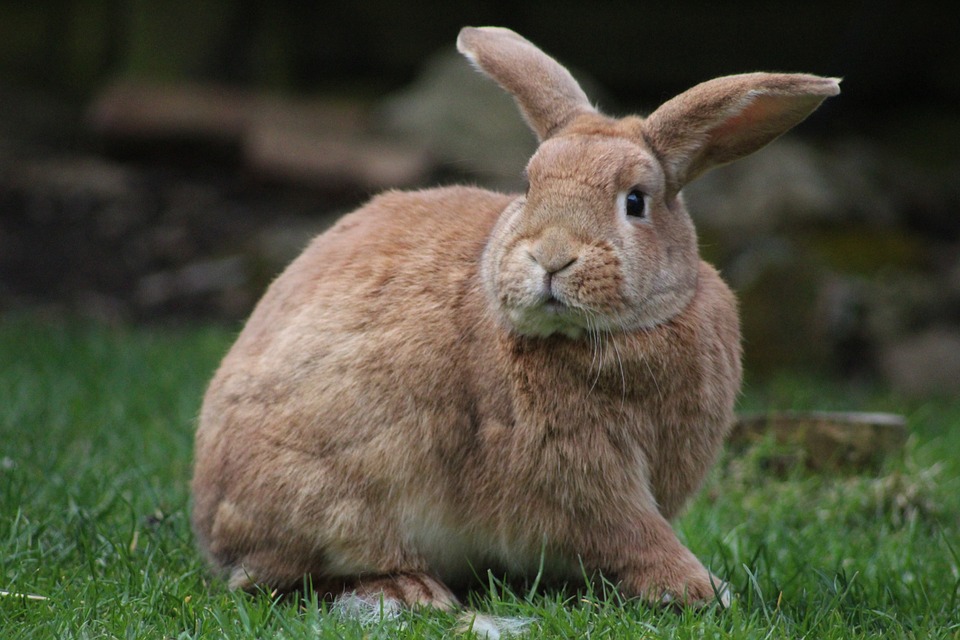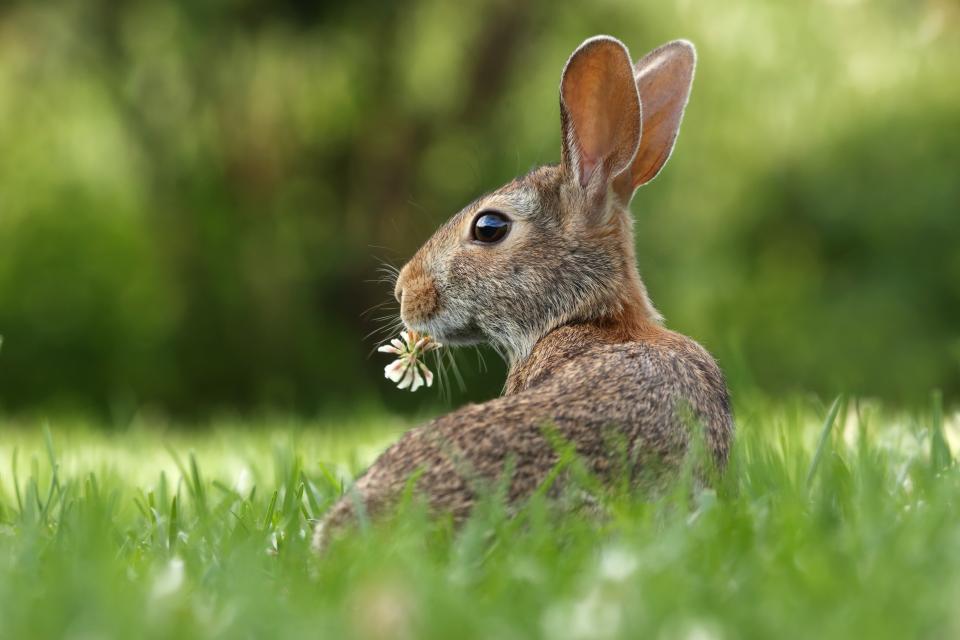This article explores the complexities of spinach in a rabbit's diet, delving into its nutritional value, potential risks, and how to safely incorporate it into their daily meals. We'll unravel the debate surrounding oxalates and their impact on rabbit health, providing a detailed guide for rabbit owners to make informed decisions about their furry companions' diet.
Part 1: Nutritional Powerhouse: Unveiling the Benefits of Spinach

1.1: A Bounty of Vitamins and Minerals
Spinach is a nutritional powerhouse, packed with essential vitamins and minerals crucial for a rabbit's overall health and well-being.
- Vitamin A: Supports healthy vision, promotes skin health, and bolsters the immune system. Deficiency can lead to impaired vision and susceptibility to infections.
- Vitamin C: Crucial for collagen production, aiding in wound healing and maintaining a strong immune system. While rabbits can synthesize Vitamin C, supplementation can be beneficial.
- Vitamin K: Essential for proper blood clotting, bone health, and wound healing. Deficiency can lead to excessive bleeding.
- Iron: Essential for red blood cell production and oxygen transport, vital for maintaining energy levels and overall health. Deficiency can cause anaemia.
- Calcium: Vital for strong bones and teeth, essential for healthy growth and development. Deficiency can lead to bone weakness and dental problems.
- Magnesium: Plays a vital role in muscle function, blood sugar regulation, and bone health. Deficiency can lead to muscle cramps and fatigue.
- Potassium: Crucial for maintaining fluid balance, regulating blood pressure, and supporting nerve function. Deficiency can lead to muscle weakness and fatigue.
1.2: Fibre Power: Promoting Digestive Health
Spinach is a good source of dietary fibre, a crucial component for a healthy digestive system in rabbits. Fibre promotes regular bowel movements, preventing constipation and aiding in the efficient passage of food through the digestive tract.
1.3: Promoting Dental Health
Chewing on leafy greens like spinach helps wear down a rabbit's constantly growing teeth, promoting healthy dental hygiene and preventing malocclusion (misalignment of teeth).
Part 2: Unmasking the Debate: Oxalates and Their Impact

2.1: Oxalates: A Deeper Look
Oxalates are naturally occurring compounds found in spinach and other plants. While they are not inherently toxic, high concentrations can bind with calcium in the body, potentially hindering its absorption.
2.2: Calcium Absorption: A Vital Concern
Calcium is essential for strong bones and teeth in rabbits, and insufficient absorption can lead to bone weakness and dental problems. While spinach's calcium content is beneficial, its oxalate content raises concerns regarding calcium absorption.
2.3: Urinary Tract Complications: A Potential Risk
High oxalate intake can contribute to the formation of urinary stones, which can cause pain, blockage, and other complications in rabbits. Rabbits with a predisposition to urinary tract issues or a history of bladder stones are more susceptible to this risk.
Part 3: Navigating the Safe Zone: Optimal Spinach Intake for Rabbits
3.1: The Golden Rule: Moderation is Key
While spinach offers nutritional benefits, it's crucial to remember that the oxalate content is a potential concern for rabbit health. The key to reaping spinach's benefits while minimizing the risks lies in moderation.
3.2: Recommended Spinach Portions: A Safe Guideline
A safe amount of spinach for a rabbit is generally considered to be no more than a couple of leaves per day. This provides a small dose of nutrients without exceeding the recommended oxalate intake.
3.3: Frequency of Spinach Consumption: A Balanced Approach
Instead of feeding spinach daily, it's recommended to offer it only a couple of times per week. This approach ensures a balanced diet while minimizing the potential accumulation of oxalates.
3.4: Introducing Spinach Gradually: A Gentle Transition
Introduce spinach gradually to your rabbit's diet to avoid overwhelming their digestive system. Start with a small piece and observe for any signs of adverse reactions, such as diarrhoea, lethargy, or changes in urine colour.
Part 4: Picking the Right Spinach: A Guide to Selection
4.1: Organic vs. Conventional Spinach: A Matter of Choice
While organic spinach is generally considered preferable due to the absence of pesticides, conventional spinach can be a safe option as long as it's thoroughly washed before feeding.
4.2: Fresh vs. Frozen Spinach: Convenience and Quality
Fresh spinach is ideal, offering the best flavour and nutrient content. Frozen spinach can be a convenient alternative, ensuring it's thawed completely before feeding and avoiding excessive quantities.
4.3: Avoiding Wilted or Damaged Spinach: Maintaining Quality
Avoid feeding spinach that appears wilted, discoloured, or damaged, as it can be a sign of spoilage or nutrient loss, potentially affecting its nutritional value and safety.
Part 5: Expanding the Green Menu: Exploring Alternative Leafy Greens
5.1: Diversifying the Diet: Beyond Spinach
Providing a variety of green leafy vegetables is essential for a balanced diet. This approach ensures a diverse range of nutrients while mitigating the potential risks associated with any single vegetable.
5.2: A List of Recommended Leafy Greens: Expanding Options
- Dandelion Greens: Low in oxalates and rich in vitamins and minerals, offering a safe and nutritious alternative to spinach.
- Parsley: A good source of Vitamin C and Vitamin K, promoting healthy skin, wound healing, and blood clotting.
- Cilantro: Offers a unique flavour and a good source of antioxidants, aiding in combating oxidative stress and promoting overall health.
- Watercress: High in Vitamins A, C, and K, supporting vision, immunity, and blood clotting.
- Collard Greens: A rich source of Vitamin K and fibre, promoting healthy blood clotting and digestion.
- Kale: Provides a good source of Vitamin A, C, and K, supporting vision, immunity, and blood clotting.
- Endive: A low-calorie option with a slightly bitter taste, offering a variety in flavour and texture.
- Mustard Greens: A good source of Vitamin A, C, and K, supporting vision, immunity, and blood clotting.
Part 6: A Vigilant Approach: Monitoring Your Rabbit's Health
6.1: Signs of Illness: Recognizing Potential Issues
Regularly monitor your rabbit for any signs of illness, including changes in appetite, lethargy, diarrhoea, or changes in urine colour or frequency.
6.2: Consulting a Veterinarian: Seeking Professional Guidance
If you notice any concerning symptoms, seek immediate veterinary attention. Prompt diagnosis and treatment can prevent complications and ensure your rabbit's well-being.
Part 7: Addressing Common Concerns: Frequently Asked Questions
7.1: Can Baby Rabbits Eat Spinach?
Baby rabbits are particularly sensitive to oxalates. It's best to avoid feeding spinach to rabbits under four months old. Their developing digestive system and smaller body size make them more vulnerable to potential complications.
7.2: Is Spinach Safe for Pregnant or Lactating Rabbits?
While spinach offers nutrients, it's best to avoid feeding it to pregnant or lactating rabbits due to the potential for oxalate accumulation. Focus on providing a balanced diet rich in calcium and other essential nutrients during these critical periods.
7.3: Can I Cook Spinach for My Rabbit?
While cooked spinach is safe for humans, it can lose nutritional value and become less digestible for rabbits. It's generally recommended to feed raw spinach to ensure maximum nutrient absorption and digestibility.
7.4: Can I Give My Rabbit Spinach Stems?
Spinach stems are generally tougher than the leaves and can be difficult for rabbits to digest. It's best to stick to the leaves, which are softer and more easily digestible.
7.5: What are Some Safe Alternatives to Spinach?
There are many safe and nutritious alternatives to spinach, such as dandelion greens, parsley, cilantro, watercress, collard greens, kale, endive, and mustard greens. These leafy greens offer a diverse range of nutrients and can be incorporated into a balanced diet for your rabbit.
7.6: How Can I Ensure My Rabbit is Getting Enough Calcium?
Ensure your rabbit has access to Timothy hay, which is rich in calcium and essential for strong bones and teeth. You can also supplement their diet with calcium-rich treats like pellets or small amounts of calcium-rich vegetables like broccoli.
7.7: What Other Precautions Should I Take When Feeding Spinach?
Always thoroughly wash spinach to remove any dirt, pesticides, or residues. Avoid feeding spinach that has been exposed to harsh chemicals or fertilizers. Remember that moderation is key, and observe your rabbit for any signs of adverse reactions after introducing spinach into their diet.
By understanding the nutritional benefits and potential risks of spinach, you can make informed decisions about incorporating this leafy green into your rabbit's diet. Remember to focus on providing a balanced diet with a variety of safe and nutritious foods, ensuring your furry friend remains happy and healthy.
Everyone is watching
-

Do Rabbits Lay Eggs? (The Surprising Truth)
OTHER TYPES OF PETSThis article will unravel the common misconception that rabbits lay eggs, exploring the fascinating world of r...
-

Can Rabbits Eat Grapes? A Guide to Safe Rabbit Treats
OTHER TYPES OF PETSThis comprehensive guide will explore the safety and suitability of grapes for rabbits, providing detailed inf...
-

What's a Group of Rabbits Called? (A Comprehensive Guide)
OTHER TYPES OF PETSThis article delves into the fascinating world of rabbits, exploring the various terms used to describe a grou...
-

Predators That Hunt Rabbits: A Guide to Natural Enemies
OTHER TYPES OF PETSI've always been fascinated by the circle of life, that delicate dance between predator and prey. Growing up ...
-

Are Rabbits Nocturnal Animals?
OTHER TYPES OF PETSThe question of whether rabbits are nocturnal animals is a fascinating one, with a surprisingly complex answer...
